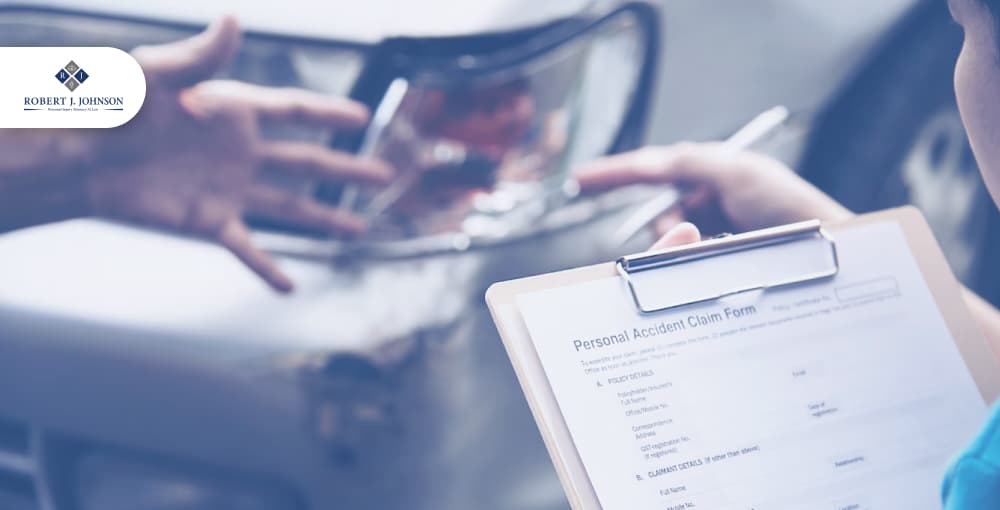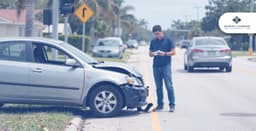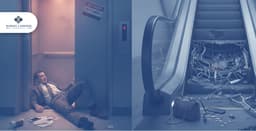
November 9, 2024
Understanding the Legal Consequences of DUI Accidents in Florida
Just a few days ago, I sat across from a man whose world was crumbling around him. His eyes, once filled with hope, were now clouded with fear and uncertainty. He had been charged with a DUI, which stands for Driving Under the Influence. This means he was operating a vehicle while his ability to drive was impaired by alcohol or drugs. As his attorney, I knew I had to provide him with more than just legal advice. I needed to offer him a lifeline, a glimmer of hope in the midst of darkness.
If you're reading this, chances are you've found yourself in a similar predicament. You may be feeling overwhelmed, scared, and alone. But let me assure you, you’re not. You’re not a victim of circumstance. You’re a survivor, and together, we can withstand this storm. This post is for those who are losing hope, and who doubt that there’s a way out. Believe me, there is.
Driving Under Influence: The Legal Consequences of Florida Drunk Driving Accidents
Driving Under the Influence (DUI) in Florida is a serious offense with severe consequences. The penalties can vary depending on the severity of the offense, including the Blood Alcohol Content (BAC) level and whether there were any injuries or deaths involved. If your BAC is above the legal limit, it becomes illegal to drive or physically control a vehicle. Florida’s strict laws protect victims, but they can be a nightmare for defendants. Let’s see what type of legal consequences you might face if you’re involved in drunk driving accidents.

DUI Penalties in Florida: Fines, Jail Time, and More
Florida has strict penalties for driving under the influence (DUI). The level of punishment depends on whether it's a misdemeanor or felony, your blood alcohol concentration (BAC), and any aggravating factors, such as injuries caused or prior convictions.
Misdemeanor DUI Penalties in Florida
If your Blood Alcohol Concentration (BAC)is between 0.08% and 0.15%, you're facing a misdemeanor DUI charge.
If you are caught driving under the influence (DUI) with a BAC in this range, you could be fined between $500 and $1,000 for a first offense. If your BAC is 0.15% or higher, or if you have a minor in the car, fines increase to $1,000 to $2,000. For a second offense, fines range from $1,000 to $2,000. With a BAC of 0.15% or higher, fines increase from $2,000 to $4,000. This is basically for drivers who are 21 years or over.
For a first offense, you might face up to 6 months in jail. If your BAC is 0.15% or higher, or if there was a minor in the vehicle, jail time can increase to 9 months. For a second offense, jail time can be up to 9 months, or up to 12 months if the BAC is 0.15% or higher, or if there was a minor in the vehicle. If it's within 5 years of your first offense in Florida, mandatory jail time of at least 10 days is required, with 48 hours of continuous confinement.
A first DUI conviction can lead to a license suspension of 180 days to 1 year.
A second offense within 5 years of the first results in a suspension of 5 years. You may be eligible for a hardship license after serving at least 1 year of suspension.
Felony DUI Penalties in Florida
If your BAC is 0.15 or higher, or if you've been convicted of DUI multiple times, you could face felony DUI charges.
For a third DUI within 10 years, fines range from $2,000 to $5,000. Also, within 10 years is punishable by up to 5 years in prison. A fourth or subsequent DUI conviction carries fines of at least $2,000, regardless of how much time has passed between offenses. Regardless of when it occurred, it is a third-degree felony with up to 5 years in prison.
Your driver’s license could be revoked for at least 5 years for a third offense within 10 years. You may be eligible for a hardship license after 2 years. A fourth DUI results in permanent license revocation, with no possibility of reinstatement.
Aggravated DUI: Increased Penalties
If you cause injury or death while driving under the influence, or if you have a minor in the car, you’ll be charged for aggravated DUI.
These situations can lead to higher fines, longer jail or prison time, and longer license suspension or revocation. For example, causing serious bodily injury can result in up to 5 years in prison and fines up to $5,000. DUI manslaughter, which involves causing the death of another person, can result in up to 15 years in prison and fines up to $10,000. You may also face civil lawsuits from victims or their families.
Florida's Zero-Tolerance Law for Underage Drivers
Florida has a zero-tolerance law for drivers under the age of 21. This means stricter penalties for underage drivers caught with any alcohol in their system like BAC of 0.02% or higher.
If caught, underage drivers face a license suspension for 6 months for the first offense and 1 year for subsequent offenses. They are also required to attend DUI school and may face additional penalties if their BAC is 0.05% or higher, including a mandatory evaluation and treatment for substance abuse.

Beyond the Criminal Penalties: Other Consequences of DUI
In addition to fines, jail time, and license suspensions, a DUI conviction in Florida can lead to other serious consequences. These penalties can affect your finances, personal life, and future opportunities.
Vehicle Seizure and Sale After a DUI
In some cases, your vehicle can be seized if you are convicted of a DUI. This is more common if you have multiple DUI offenses. If your vehicle is seized, it may be sold at auction. This means you could lose your car permanently.
Ignition Interlock Device (IID) Requirements
An Ignition Interlock Device (IID) is a breathalyzer installed in your car. You must blow into it to start the vehicle. If alcohol is detected, the car won’t start.
So, when is it required? In Florida, an IID is required for certain DUI offenders. For example, if your BAC was 0.15% or higher, or if you had a minor in the car, you might need to install an IID. Repeat offenders are also required to use an IID.
The IID must be installed for a certain period, which can range from 6 months to several years, depending on the offense.
Soaring Insurance Premiums Following a DUI
After a DUI conviction, your car insurance premiums will likely increase significantly. This is because insurance companies see you as a high-risk driver.
You may also be required to file an SR-22 form, which is a certificate of financial responsibility. This proves you have the minimum required insurance coverage. Filing an SR-22 usually comes with additional fees and higher insurance rates.
Civil Liability and Potential Lawsuits
If you cause an accident while driving under the influence, you could be sued by the victims. They may seek compensation for medical bills, property damage, lost wages, and pain and suffering.
The amount of money you might have to pay can be substantial. In some cases, it could be hundreds of thousands or even millions of dollars. This financial burden can be long-lasting and affect your future significantly.

Florida's Unique DUI Laws: What You Need to Know
Florida has some unique DUI laws that apply to different types of vehicles and situations. Understanding these can help you avoid severe penalties.
Boat DUI Laws in Florida
In Florida, it’s illegal to operate a boat while under the influence of alcohol or drugs. This is known as Boating Under the Influence (BUI). The legal limit for operating a boat is the same as for driving a car, which is a BAC of 0.08% or higher.
Penalties for a BUI can include fines, jail time, and mandatory boating safety courses. For a first offense, fines can be up to $1,000, and you could face up to 6 months in jail. Repeat offenses carry harsher penalties, including higher fines and longer jail time.
More for you
6 steps to take if you are involved in a BUI or Boat Accident
Commercial Vehicle DUI Penalties
The legal BAC limit for commercial drivers is lower than for regular drivers. A BAC of 0.04% or higher is considered over the limit.
If a commercial driver is convicted of a DUI, they face severe penalties. These can include fines, jail time, and a longer license suspension. The commercial driver’s license (CDL) can be suspended for one year for a first offense. If the driver was transporting hazardous materials, the suspension can be up to three years. A second offense can result in a lifetime disqualification from holding a CDL.
Other Relevant DUI Laws
When pulled over for suspected DUI, officers may ask you to perform field sobriety tests. These tests assess your physical and cognitive abilities to determine if you are impaired.
Florida has an implied consent law, which means that by driving in the state, you automatically agree to submit to a breath, blood, or urine test if suspected of DUI. Refusing to take these tests can result in an automatic license suspension. For a first refusal, your license can be suspended for one year. A second refusal can lead to an 18-month suspension and is considered a misdemeanor.
Conclusion
Driving under the influence (DUI) is considered a serious offense in Florida. If you are involved in a DUI accident, you need a strong defense lawyer who understands the complexities of DUI laws and can protect your rights. DUI convictions come with harsh penalties, including fines, jail time, license suspension and many more. But our firm can offer full legal support to offenders of DUI accidents. With Robert J. Johnson, you’ll have an experienced DUI defense lawyer fighting for your rights every step of the way. Contact us today for a consultation and let us provide you with a solid legal strategy to achieve the best possible outcome.


































































